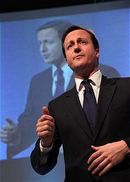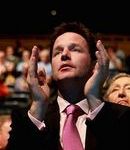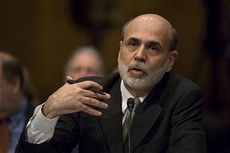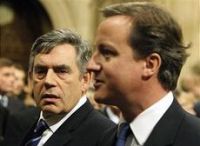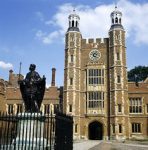When did the Tories become an “alternative government”?
There are a couple of noteworthy snippets in today’s FT interview with George Osborne: the claim that the Tories may not take corporation tax as low as it is in Ireland; the outline of a “five-year road map” on business tax policy, etc. But, I must admit, it’s this passage which jumped out at me: “[Osborne] says his Tory conference speech in October, which included plans for a public sector pay freeze and an increase in the state retirement age, ‘was an important moment’ that showed a mental leap to being ‘an alternative government, not just an opposition’.” These self-bestowed titles – “alternative government,” and the like – are



